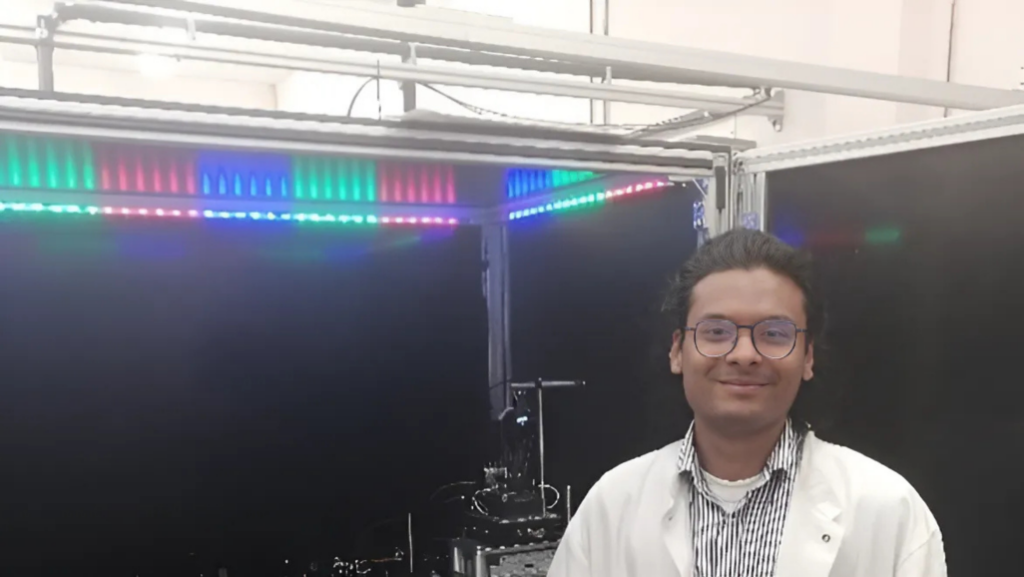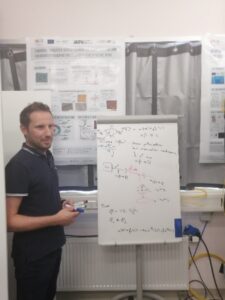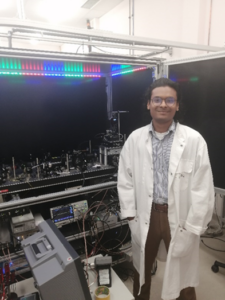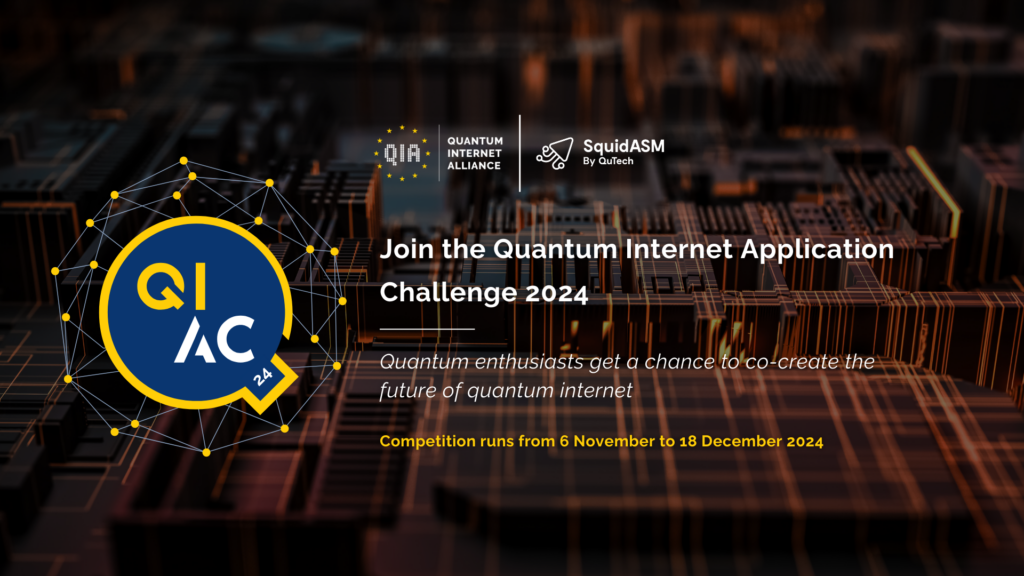25.11.2024News
From university to the lab: a student’s journey through QIA’s Building for One Europe Internship

What’s it like to work at the forefront of quantum technology as an undergraduate? In this interview Jim Montasir, bachelor student in Information Engineering at the Technical University of Munich (TUM), Germany, shares his 3-months experience as intern in the Luxembourg Institute of Science and Technology (LIST). Thanks to the internship, funded by QIA’s Building for One Europe Internship Program, this young researcher explored silicon carbide’s potential for quantum communication and gained firsthand insights into the field’s future. Let’s hear more from Jim about it!
How did you first learn about the Building for One Europe Internship Program with QIA, and what was the selection process like for you?
I first heard about the internship through a Discord group where fellow quantum enthusiasts often posted about opportunities in the field. Curious and excited, I looked up more information and quickly decided to apply. Florian Kaiser, the Leader of the Quantum Materials team at LIST and my soon-to-be supervisor, invited me for a 1:1 interview and helped me understand more about the work in his team. Later, he invited me to a second call where I met the rest of the team and got a feel for the people I’d be working alongside.
Can you share more details about your work on colour centres in silicon carbide? What were your key takeaways?
The main takeaway from my work on colour centres in silicon carbide (SiC) was gaining the ability to generate and characterize colour centres from a silicon carbide sample using a confocal microscope and scanning system. As a computer science student, it was incredible to work in a lab focused on the vision of producing quantum chips from SiC-based semiconductors at an industrial scale. I didn’t fully understand the potential of silicon carbide as a quantum semiconductor until I worked closely with Mr. Florian and his team. Additionally, the hands-on lab experience itself was one of the most valuable aspects of this internship.
How did your mentor’s guidance influence your approach to research and problem-solving?

Florian Kaiser is an incredible leader who inspired me through his inclusive approach to research and problem-solving. As the only bachelor’s student in the research group, I initially felt a bit out of place, but he made sure I was fully involved and able to keep up with everything happening in the lab. From morning coffee discussions to late-evening lab sessions, Mr. Florian showed me that research requires not only equipment but also a blend of passion and patience. With the right team and an inclusive mindset, research can truly be enjoyable – a lesson that will certainly guide my next steps as a researcher.
How do you see the research you conducted on quantum materials contributing to the future of quantum computing and communication systems?
The long-term vision of the Quantum Materials team is to develop industrial-grade quantum chips using SiC colour centres, which provide an ideal platform for quantum communication, and potentially also quantum computing. I’m excited to see further exploration of semiconductors like SiC, as much of the pioneering work in quantum materials has focused on nitrogen vacancies in diamond, and semiconductors have unique characteristics that make them strong candidates for developing a robust platform for future quantum technologies.
In the internship report you mentioned connecting with forward-thinking researchers in the quantum community. How did these connections enhance your internship experience and your vision for your future career?
As a bachelor’s student, it’s hard to find like-minded people in quantum computing since it’s typically introduced at more advanced academic levels. The team I worked with had people from diverse backgrounds and areas of expertise, all contributing to a shared goal. The entire nanomaterials department at LIST is full of incredible researchers and scientists who are genuinely excited about the future of their field. The connections I made outside the lab were equally impactful, as Luxembourg is a country which invests in new quantum technologies, e.g., with a recent acquisition of a quantum computer, and strong involvement in quantum communication activities across Europe. This creates a rich ecosystem for young researchers to connect with forward-thinking individuals.
How has this internship shaped your academic and professional goals? What are your next steps following this experience?
What are your next steps following this experience?
After my internship at LIST, I transferred my bachelor from the University of Pecs, Hungary, to TUM in Germany, which is renowned for its quantum research opportunities. TUM offers several flagship programs that align with my interests. The experience I gained at LIST has given me the confidence to approach academics working in quantum computing, helping me further develop my expertise in the field. Professionally, I plan to keep my options open, considering opportunities with both large organizations and smaller startups or research groups after graduation, all while nurturing my intellectual curiosity in quantum technology.
What advice would you give to future students who are interested in working on quantum technologies?
Quantum technologies will soon be integrated into many aspects of our lives, much like artificial intelligence is today. While working in quantum tech can be daunting at times, it’s also incredibly rewarding—especially when you realize that even the brightest minds in the field feel the same way. That’s one of the most exciting aspects of it. Conversations about quantum technologies never bored me; instead, they thrilled me with the endless possibilities and the chance to stay ahead of the curve. My advice to anyone interested in this field would be to embrace what scares you the most and trust the process.

